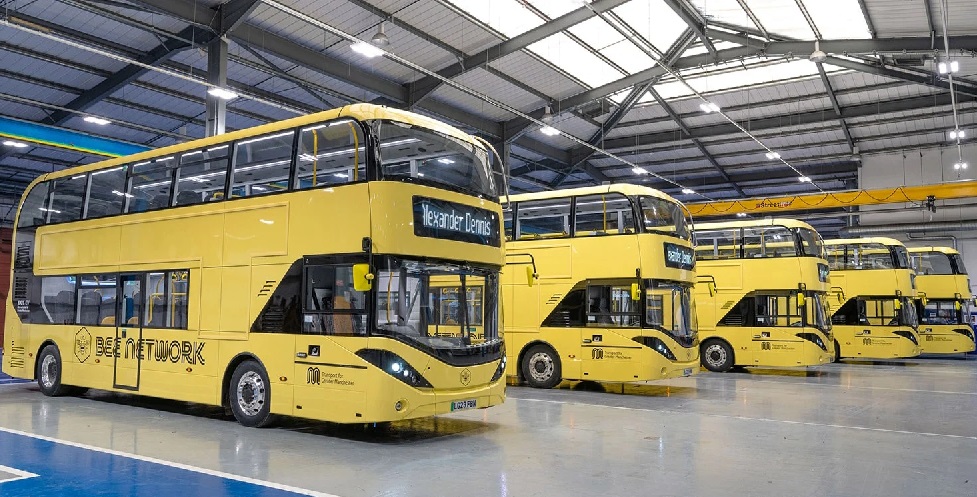Drivers in Greater Manchester will not face additional charges as the area is set to benefit instead from 117 new lower and zero-emission buses in a 86 million pounds scheme to help clean up the region’s air, the Government confirmed on 23 January.
Defra and the Department for Transport have rigorously assessed an investment-led plan proposed by local councils and concluded it will meet legal obligations to reduce nitrogen dioxide pollution.
While local authorities in other areas have found that a Clean Air Zone is the best route to cutting nitrogen dioxide pollution, Greater Manchester provided evidence they can achieve compliance with legal limits faster without charging.
The decision rules out a Clean Air Zone in Manchester so motorists will not be charged to drive into the area.
Instead, there will be a fleet of new buses and traffic-calming measures to improve air quality in the region.
The investment-led package includes:
- 51.1 million pounds towards bus investment, including 40 zero emission buses, 77 Euro VI standard buses and charging infrastructure;
- 5 million pounds for local traffic management measures;
- 8 million pounds to support moving Greater Manchester’s taxi fleet to cleaner vehicles
- Up to 21.9 million pounds for administration, delivery, monitoring and other associated costs.
Air Quality Minister Emma Hardy says: “Local authorities know their communities well and so they need to develop plans that are most effective for their local area, and I am pleased that Greater Manchester has found a clear way to reduce emissions without the need to charge motorists.”
“I look forward to working with the teams across Greater Manchester as they put this important plan in place. Government will continue to take the action needed to ensure everyone has safe air to breathe across the nation,” she adds.
Lilian Greenwood, Minister for the Future of Roads, states: “Having completed the groundbreaking Bee Network buses, Greater Manchester is making fantastic progress in building a modern, sustainable and truly integrated transport network.
She continues: “Manchester will be able to reduce pollution from transport without having to charge motorists, and new, cleaner buses will help Mancunians get around easily while still bringing down emissions across the city. We will continue to work with local leaders to create better connected communities, meet our climate targets and make Britain a clean energy superpower as part of our Plan for Change.”
Mayor of Greater Manchester Andy Burnham indicates: ” The Bee Network is cleaning up our air and keeping the cost of travel as low as possible. Its success is allowing us to remove a big weight of worry off the shoulders of people who need to drive as part of their job.”
“We are grateful to Steve Reed and Heidi Alexander for backing us with funding to take our approach further and faster. We will now continue to work towards an all-electric bus fleet whilst investing in local traffic measures and supporting our GM-licensed taxi drivers to upgrade to cleaner vehicles,” he adds.
The UK has legally-binding targets to reduce the concentration of nitrogen dioxide in the air to an annual average of no more than 40 micrograms per cubic metre.
It is the role of local councils to determine the quickest and most effective way to do that.
As part of its nitrogen dioxide programme, the Government works with local authorities to ensure proposed plans address nitrogen dioxide pollution in the shortest time possible, delivering better environmental outcomes for residents.
Local leaders are central to our mission to deliver change, and the Government recently announced a £69 billion support package for councils across the country to fix the foundations of local government for good.
Read more: Top companies gather at the “Storage, Renewable and Electric Vehicles Integration Forum”







